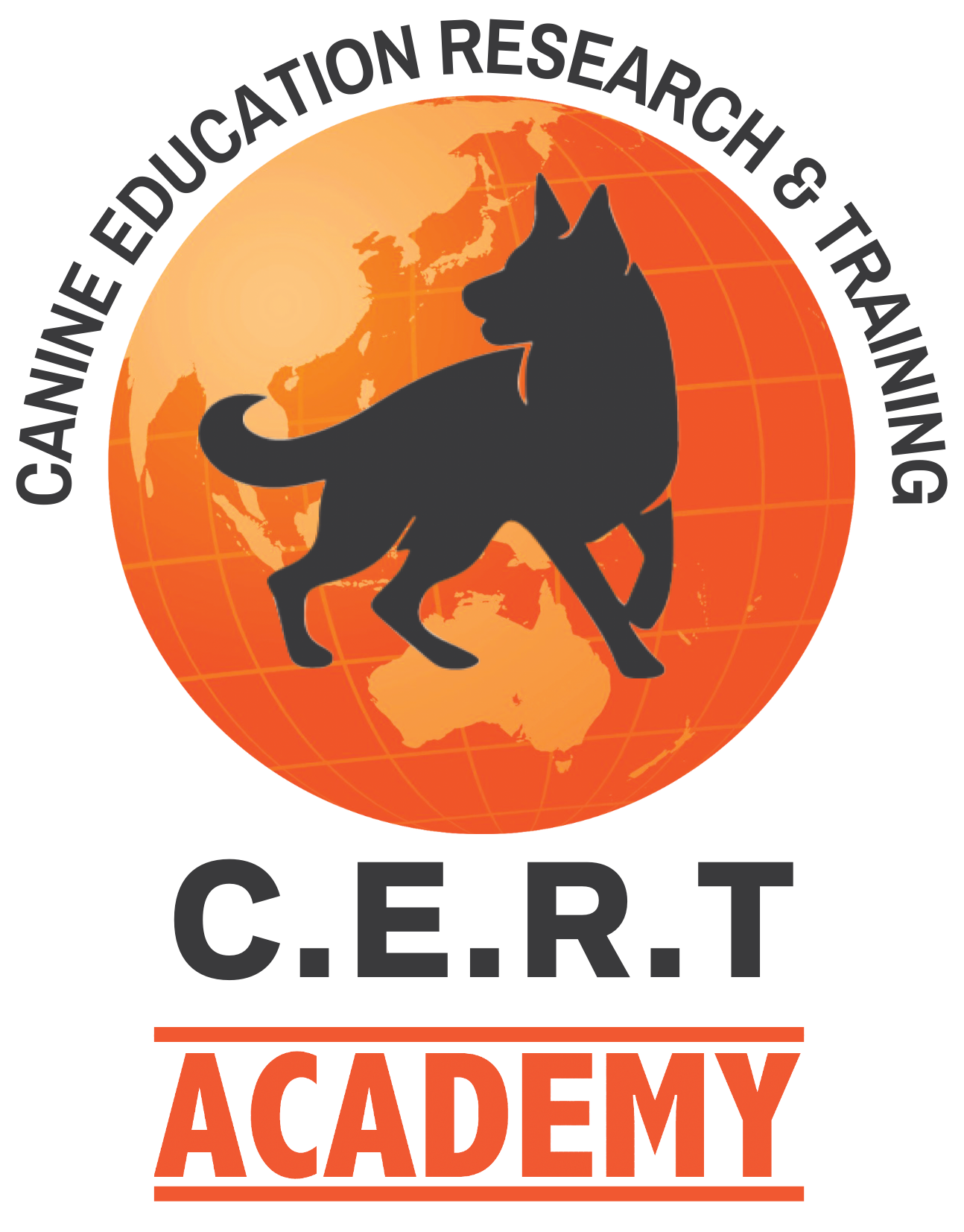During a dog’s early development, we are looking to build the mindset, conceptual worldview and associations that will be productive and adaptive during future interaction and training activities.
In effect, we are “programming” the pups' very plastic brains through communication, education & experiences to perceive the world the way we want, based on each dog’s future roles and tasks. We are looking to develop high levels of social competence, confidence and resilience, that prepare the dog for its future life, roles and tasks.
A significant aspect in the early development and education of pups is developing a schema of cooperation & collaboration.
This cognitive schema significantly enhances proactive interaction and trainability and reduces problematic behaviour.
‘So much of the foundation training, particularly with pups involves developing their perceptions about things in the world. At the top of the list is the dog’s perception of us, the owners & trainers. Attention to this needs to be a priority during training activities and all interactions.’ (Professional Trainer, Dave Haywood)
The PYDDS4 course focuses heavily on modern scientific research, and information from leading breeders and professional trainers, that has updated and enhanced our understanding of the subject in the 21st century. Of course, the program covers historic knowledge regarding topics such as critical periods of development, early neurological stimulation, environmental enrichment of pups, and so on, however, most of what is out there in popular books and on the internet (and on most courses) is decades old, and by no means cutting-edge or optimal for the development of easy to manage and high-performance dogs.
This new information, including significant changes to rearing &. conditioning protocols, and the introduction of the SECOND periods, has changed the way we raise pups to such an extent that it is referred to by many industry leaders s as ‘the new synthesis of pup and young dog development’. This course goes in-depth into the applied technology and procedures that are now available to optimise our dog's development regardless of breed or purpose.
Another significant benefit of the new knowledge and technology that has emerged over recent years relates to our ability to prevent the myriad of problematic psychosocial and behavioural issues that have been effectively “created” by insufficient or incorrect early exposure, experiences and schema development.
To a large degree maladaptive fears & phobias, anxiety disorders, hypersensitivity, and significant separation stress/anxiety are now things of the past based on this new knowledge and applied protocols. This is a big claim, however as it turns out, the vast majority of these problems, particularly the more serious cases, were due to the fact that we were not doing the right things at the right time with our pups.
This course takes an in-depth look at comparing the original (now largely considered antiquated) ideas and protocols (most developed 50+ years ago) and the new information and applied technologies.
We are aware that student's will have different reasons for completing this course and as such there are 2 elective modules.
The first covers the assessment process and protocols to determine a pup’s suitability for specific roles and tasks. It covers the criteria and evaluation process for a diverse range of working and service dog roles, and assessment for suitability in domestic & companion dog roles. The second elective module covers dealing with (managing & modifying) behavioural problems in pups and young dogs. Both are optional (zero cost) modules for those who require education or competencies in these areas.
The course is a generic program and is therefore relevant to persons from all fields of dog breeding, training, and behaviour modification. The course has been designed for and is highly recommended to breeders, pup raisers and trainers from all sectors, particularly those involved with working & service dogs and persons who are responsible for rearing and developing pups.
The PYDDS4 is not an entry-level program and applicants will need to provide evidence of prior learning in a relevant area of animal learning, training or breeding to be eligible for this course.
Due to the detailed nature of this program, students will require the CERT Academy Applied Canine Behaviour & Learning 3 (ACBL3) course. As this is the first time we are offering these courses to the general public, they will run concurrently.
When you enrol for the Pup & Young Dog Development Specialist 4 course you will automatically be enroled in the Applied Canine Behaviour & Learning 3 course, so you do not have to do this separately.
ACBL3 is currently included at no additional charge for those undertaking this PYDDS4 course.
The PYDDS4 program can be conducted entirely by distance learning if you prefer that option as it makes use of extensive and detailed instructional videos taking you through all aspects of this specialist field.
In addition, those who prefer a more 'hands-on' approach are invited to attend practical training sessions at our facilities working with a diverse range of pups and young dogs under development.
Students are provided with a highly detailed and comprehensive e-manual, and other learning resources.

